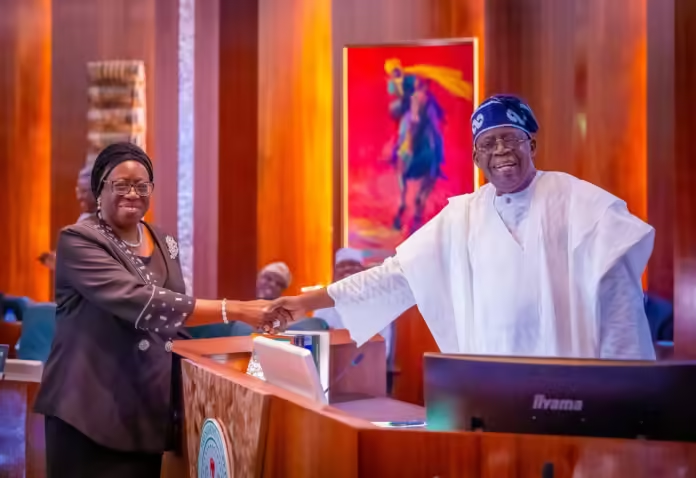The Chief Justice of Nigeria, CJN, Justice Kudirat Kekere-Ekun, says introspection is a critical tool for refining judgment.
The CJN said this while declaring open the 2024 Annual Conference of the Court of Appeal in Abuja on Monday.
To avoid conflicting judgments in the Court of Appeal, Mrs Kekere-Ekun urged Justices of the court to hold conferences to share experience and expertise on matters brought before them before judgment is given.
“It is a professional necessity for those entrusted with the administration of justice.
”As I do say, we need to be the change that we want to see in the world around us.
”For judicial officers, introspection serves as a critical tool for enhancing performance, refining judgment, and bolstering public confidence in the judiciary.
”It demands not only self-emigration, but also an openness to change and growth, particularly in response to the evolving expectations of society” she said.
According to the CJN , introspection is often individual, the judiciary as an institution, must also engage in collective reflection.
”This is vital because the judiciary, though made up of distinct judicial officers, is perceived as a single entity.
”Public confidence in our system relies not only on our individual integrity, but on the collective strength of our institution. This conference represents an opportunity for collective introspection.
”Through discussions, shared experiences, and learning, we can identify areas for improvement and strategize on how to overcome challenges that affect justice delivery.
”Judicial education plays a key role in this process. Increasingly, judicial training programs are incorporating social context awareness initiatives that emphasize understanding the diverse backgrounds cultural, economic, and otherwise of those who come before our courts.
”These programmes ensure that we deliver justice, not only impartially but also equitably.
”In addition, as the legal landscape evolves with the advent of digital technology and emerging fields of law, judicial education must include digital literacy and awareness of modern technologies.
”This will enable us to handle cases involving novel issues, such as cybercrime and digital evidence, with the competence they demand” she said.
Also speaking, the Attorney-General of the Federation,, Lateef Fagbemi, SAN called for reflection on the past years.
”It is imperative to acknowledge the significant strides made in promoting judicial inclusion.
”A truly just society is one where every individual, regardless of their background, has equal access to justice. This is a fundamental right enshrined in our Constitution.
”The Nigerian judiciary, as guardian of justice and protector of our rights, must reflect the diversity of the nations it serves.
”Aside meritorious judicial abundance, judicial inclusion can also be achieved by enhancing accessibility to justice and fostering public trust and confidence” he said.
He said the Nigerian judiciary has a long and proud history of dispensing justice without fear of evil attraction.
He added that it is not in doubt that the court of appeal particularly has to very great extent demonstrated its ongoing commitment in upholding the principles of justice equity and fairness.
The Federal Capital Territory (FCT) Minister , Nyesom Wike, said that he was ready to make sacrifices to see that judiciary functions effectively.
” As the minister of flag-capturing territory, I made a committed to provide independent support to ensure that judiciary functions effectively.
” I assure you that we have established a security indicator to create an independent party for justice not only to be done but to be seen for the good of the people.
” We are open to working closely with the judiciary to identify the areas where improvements are necessary and to give them solutions that will enhance the delivery of justice.
” This includes upgrading court facilities, providing modern equipment, and ensuring that the welfare of official officers and courts are prioritized. In a rapidly changing world, I urge our state to continue exploring innovative approaches to justice delivery” he said.
He said this conference should serve as a platform to discuss not only the challenges we face, but also the opportunities to harness technology to the benefit of our judicial system and the public.
He therefore urged the judges to take this moment to recharge and prepare for the challenges of the coming year.
” The road ahead may not be without obstacles, but with unity, determination, and a shared commitment to justice, I am confident that we will succeed” he said.




